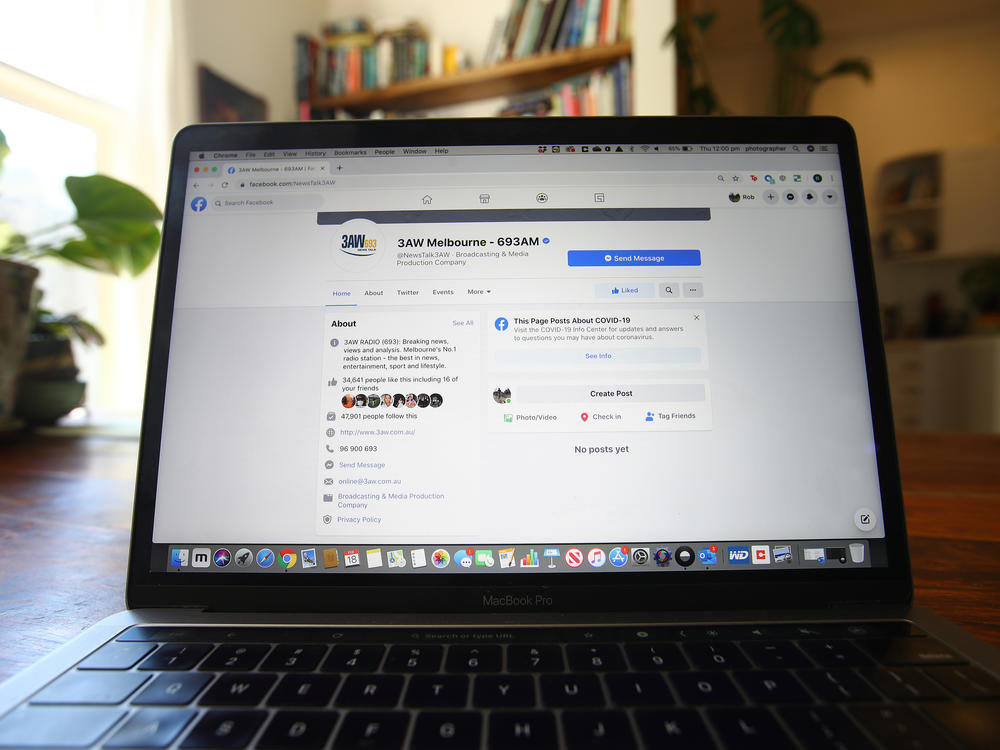Section Branding
Header Content
Facebook To Restore News Content After Brokering Deal With Australian Regulators
Primary Content
Updated at 1:36 p.m. ET
Facebook will restore news pages in Australia after the government agreed to change a proposed law forcing tech companies to pay publishers for news content.
"Facebook has refriended Australia," said Australian Treasurer Josh Frydenberg.
The proposal would force Google and Facebook to pay Australian news publishers for stories. It would allow media companies to bargain, either individually or collectively, with the companies over payment. If no agreement could be reached, payment terms would be set by a third-party arbitrator in a government-run process.
The government's latest tweaks to the measure give the platforms more time to negotiate with publishers and clarify that they can potentially avoid forced arbitration if they reach deals.
Both platforms objected to the proposed media code, particularly its forced arbitration provision. But last week, Google dropped its objections and struck deals with the nation's biggest publishers. Facebook, in contrast, protested and yanked news content from its site in Australia last Thursday, sparking outrage from critics around the world.
After a weekend of what Frydenberg described as "intensive negotiations," Facebook backed down.
"We are satisfied that the Australian government has agreed to a number of changes and guarantees that address our core concerns about allowing commercial deals that recognize the value our platform provides to publishers relative to the value we receive from them," said William Easton, Facebook's managing director for Australia and New Zealand, in a statement. The platform contends that publishers benefit more than it does from having news on Facebook.
Under the amended media code, the platforms would get more time to reach agreements with publishers. The arbitration provision remains, but only as a "last resort" if "good faith" negotiations fail.
Another amendment says the government must consider whether the platforms have "made a significant contribution to the sustainability of the Australian news industry" by striking any commercial deals with publishers, before forcing them to abide by the media code at all. Both Facebook and Google already pay some publishers for news content that appears on parts of their sites.
Facebook said it also retained the right to pull news content once again in Australia if the government does try to apply the media code against it.
"Going forward, the government has clarified we will retain the ability to decide if news appears on Facebook so that we won't automatically be subject to a forced negotiation," Campbell Brown, Facebook's vice president of news, said in a statement.
Hours after Facebook agreed to reverse its news ban, the social network said it reached a deal with Seven West Media, one of Australia's major newspaper and TV channel owners.
Editor's note: Facebook and Google are among NPR's financial supporters.
Copyright 2021 NPR. To see more, visit https://www.npr.org.

